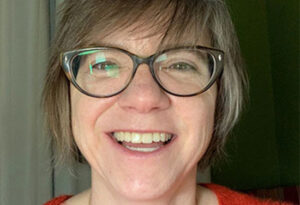
JDRF’s leadership role in expanding pioneering research was highlighted at the American Diabetes Association’s (ADA) 78th Scientific Sessions held at the Orange County Convention Center in Orlando, Florida, from June 22-26.
Bringing together diabetes researchers and healthcare professionals from across the globe, the Scientific Sessions is the world’s largest meeting focused on diabetes. The five-day conference is a major event in the type 1 diabetes (T1D) and broader diabetes community that fosters the exchange of ideas with experts in the field, while showcasing ground-breaking developments in areas such as glucose control, beta cell regeneration and artificial pancreas, to name a few.
“At JDRF we are committed to funding innovative therapies to keep people with T1D healthier until a cure is discovered,” says Dave Prowten, president and CEO of JDRF Canada. “Over the past year, there has been progress that is changing the face of T1D and offering hope to everyone living with the disease.”
Among the scheduled presentations at the conference, more than 60 had a JDRF connection. This year also marked the first time that JDRF conducted onsite video interviews with 15 of its researchers to report on their studies or sessions.
Keynote sessions centered on promising T1D research studies that are paving the way to novel treatments. Here are our top three highlights:
Lesson Learned from the Environmental Determinants of Diabetes in the Young (TEDDY) Study—Insights into Early Autoimmune T1D
Research Category: PREVENTION
Funded by JDRF, the National Institutes of Health, the Special Diabetes Program and other organizations, the TEDDY consortium was created to advance our understanding of how environment alters immunity, bringing us closer to prevention of T1D. TEDDY is a project that is tracking children at risk of T1D. Researchers are examining diet, illnesses, allergies and a host of other life experiences in order to determine environmental susceptibility to the disease. At ADA, it was found that children who develop autoimmunity early tend to develop insulin autoantibodies (i.e., antibodies produced by the immune system that are directed against one or more of the individual’s own proteins) first and progress faster to T1D, while those who develop autoimmunity later in childhood tend to develop different autoantibodies and progress more slowly.
Should All Pregnant Women with T1D Use Continuous Glucose Monitors (CGMs)?
Research Category: GLUCOSE CONTROL
JDRF-funded Dr. Denice Feig, the CONCEPTT co-principal investigator, presented her ‘pro’ argument as part of a professional group interest session. Continuous glucose monitoring systems have the potential to revolutionize diabetes management among pregnant and breastfeeding women with T1D because they allow them to take immediate action in response to high or low blood sugars, and avoid other serious health-related issues.
Medalist Studies: International Summit on the Study of T1D of Very Long Duration
Research Category: COMPLICATIONS
Joslin Diabetes Center’s 50-Year Medal Program recognizes individuals who have lived with type 1 diabetes for 50 or more years, and researchers are studying this group to determine factors that may allow them to be resistant to the complications associated with the condition. JDRF has funded nearly $5 million towards the Joslin Medalist Study since 2005, including a Canadian group in 2013.
One of the goals of the Joslin Medalist Summit was to bring together all of the various groups from Australia, United Kingdom, Denmark, Finland and the United States that are working on studying long-duration T1D to see if they could learn from each other, share protocols, harmonize approaches and maximize the possibility of identifying protective factors that can prevent complications, such as eye disease or kidney disease. This was the first-ever summit of all these groups coming together and marks the beginning of continued collaboration to further recognize aspects of long-duration T1D and protective factors.
Watch JDRF’s associate director of research, Dr. Marlon Pragnell, give a recap of the Joslin Medalist meeting and what it could mean to those living with T1D.
Other key JDRF-funded projects addressed at the ADA Sessions included:
The Perl (Preventing Early Renal Loss in Diabetes) Clinical Trial
Research Category: COMPLICATIONS
Dr. Alessandro Doria and his team at the Joslin Diabetes Center are investigating a medication called allopurinol as a potential treatment to prevent early kidney function loss in diabetes. This research has the potential to delay the onset of dialysis or end-stage kidney disease by as many as 10 to 15 years, and perhaps even prevent both.
Research Category: GLUCOSE CONTROL
Dr. Paresh Dandona and his colleagues at the State University of New York at Buffalo are examining the use of a medication called liraglutide to control glycemic fluctuations in people with T1D. The availability of an additional, effective drug to regulate blood glucose levels could prevent complications and greatly improve their quality of life.Dr. Paresh Dandona discusses a JDRF supported study that saw that use of the medication liraglutide helped to control glycemic oscillations in people with type 1 diabetes (T1D) and significantly lowered HBA1C levels.
Click here for more information on JDRF-funded research projects featured at the ADA’s Scientific Sessions.
For highlights, conference news and video clips from the ADA’s 78th Scientific Sessions, click here.
Visit our JDRF Blog for more informative articles on type 1 diabetes and health.




